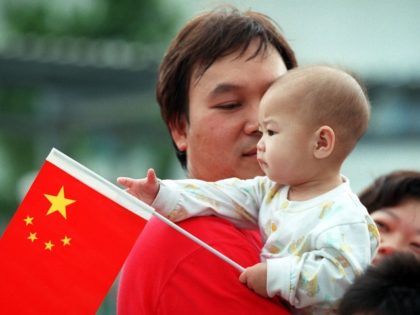CDC: U.S. Birth Rate at Record Low After Pandemic Boost
Fertility rates in the United States hit a record low in 2023, according to provisional data released by the Centers for Disease Control and Prevention (CDC) on Thursday.

Fertility rates in the United States hit a record low in 2023, according to provisional data released by the Centers for Disease Control and Prevention (CDC) on Thursday.

Seoul, South Korea – the capital of the nation with the world’s lowest fertility rate – launched a survey on Wednesday asking residents if they approved of an idea to pay 100 million won in cash (about $72,500) to parents for every baby their family welcomes.
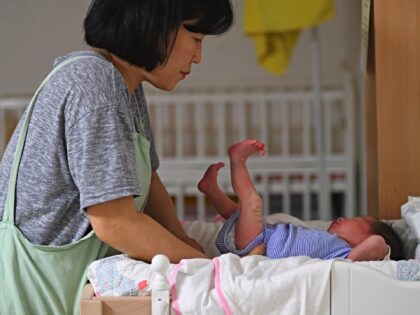
The birth rate in England and Wales has fallen to a new low since records began, with the rate falling to just 1.49 per woman in 2022.

The collapse of fertility rates in China could lead to millions of teachers losing their jobs in the next decade, the South China Morning Post reported on Tuesday, as classroom sizes shrink and some neighborhoods find no use for smaller elementary schools at all.
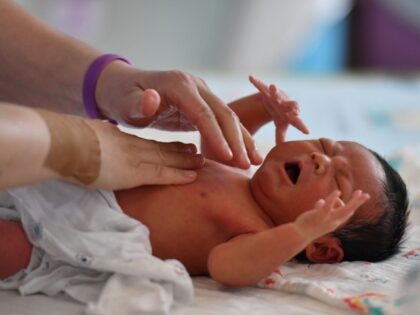
The number of births in France has fallen to its lowest level since the Second World War in a grim indicator of Western demographic collapse.

South Korea on Sunday announced more aggressive measures to stave off the worst population crisis in the world, boosting child care subsidies into a “monthly salary for parents” and raising the already sizable cash bonus for childbirth, plus more paid family leave and subsidized mortgages for the parents of newborn children.

Chinese censors on Wednesday quickly deleted an article in a maternity-related news service that leaked plummeting birth rate data for 2023, revealing China’s population crisis is even worse than the regime has previously admitted.

Cuba’s Communist Party approved changes to the nation’s health code that, once formally implemented, will allow euthanasia.

The fertility rate in the Netherlands continues its long-term downward trend as more couples decide to have no children at all.

Communist dictator Kim Jong-un cried while delivering remarks this week to North Korea’s “national conference of mothers,” urging women across the country to help with “stopping the declining birth rate” and reminding mothers of their government requirement to “become communist.”

Nestle will shutter or sell the Wyeth Nutrition baby formula factory in Askeaton, Ireland, due to collapsing birth rates in China.
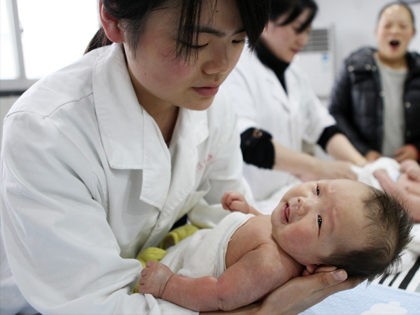
The French birth rate has declined to such an extent that the birth-to-death ratio is now nearly equal, the lowest level since World War II.

Italian Prime Minister Giorgia Meloni met with Tesla founder and Twitter owner Elon Musk for an hour and a half in Rome this week, bonding over concerns about low natality rates.

A new study finds there’s a considerable impact of the level of education a woman’s own parents has on the total fertility rate.

A coffee shop in South Korea has gone viral on the Internet this week after a local shared a photo of its door with the label “No-senior zone (no entry for elderly over 60).”

Italy’s birth rate has dropped to its lowest level ever, fueling concerns for the nation’s demographic and economic future.
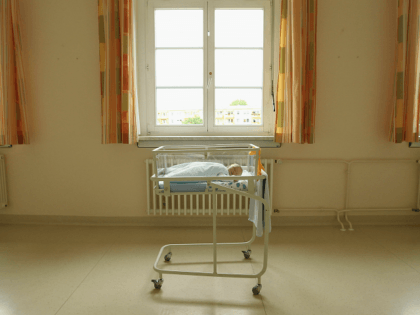
The total population of United States citizen children born to illegal aliens now far exceeds one year of American births, a March analysis shows.
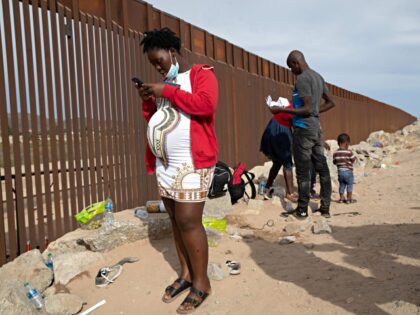
A city in China will start to pay a monthly subsidy to families that decide to have a third child in an effort to reverse the country’s catastrophic birth rate, according to a report published by China’s state-run newspaper Global Times on Sunday.

The top Chinese health official in charge of population monitoring on Friday called for “bold” action to reverse China’s population decline, specifically including programs to reduce the cost of childbirth so Chinese families will begin having more babies.

The Chinese Communist Party’s National Bureau of Statistics reported on Tuesday that it had documented a decline in its population of about 850,000 people in 2022, the first official drop since 1962 despite many demographers warning that China may have been in population decline since at least 2020.
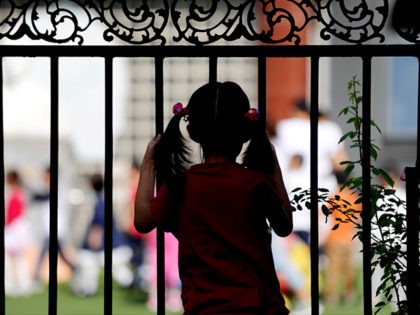
Italian Prime Minister Giorgia Meloni met with Pope Francis for the first time Tuesday, with the nation’s serious demographic problems front and center in their discussions.

Finland experienced a mini baby boom at the start of the coronavirus pandemic, but new statistics reveal that 2022 may have seen a record-low number of births in the EU country. Finland saw a small baby boom in the first

Illegal aliens, tourists, and foreign visa workers delivered nearly 400,000 children across the United States last year, exceeding the populations of many American cities like Cleveland, Ohio; Pittsburgh, Pennsylvania; Newark, New Jersey; and Orlando, Florida, among others.
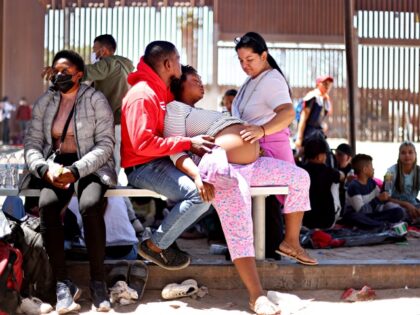
The collapse in male fertility rates around the world is accelerating, according to journal Human Reproduction Update.
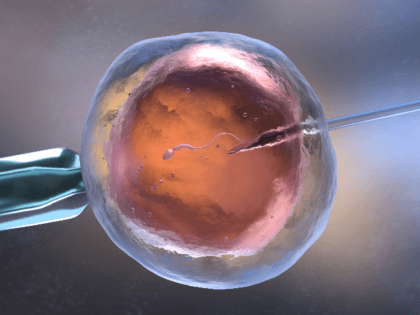
A poll has found that around a third of French women of childbearing age say they do not want to, citing reasons including climate change.
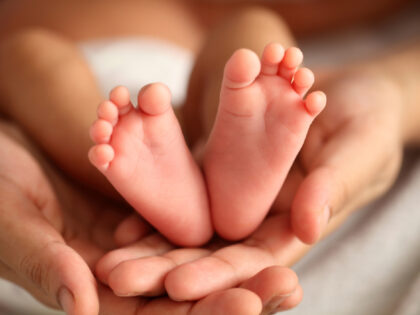
China’s state-run Global Times cited government-approved “experts” to declare that the catastrophic decline in marriages nationwide – 2021 saw the lowest rates in marriage registrations since the government began documenting them – was “a normal phenomenon” that citizens should not concern themselves with.

Polls show a steady lead for the right in the September 25 Italy election, with pledges to support falling birthrates and tackle immigration.

China’s National Health Commission (NHC) told Reuters this week that ongoing Chinese coronavirus lockdowns nationwide have had a “clear impact on the marriage and childbirth arrangements of some people” within the country and have contributed to the nation’s plummeting fertility rate and shrinking population, the news agency reported on Tuesday.

China’s recent negative population growth “will be the dominant trend” in China “for a long time,” Chinese demographer Huang Wenzheng told the Global Times on Sunday.

Japan had a “record low” of 811,604 newborns last year, Kyodo News reported on Friday, noting that the data was merely the latest statistic highlighting Japan’s dire population woes.
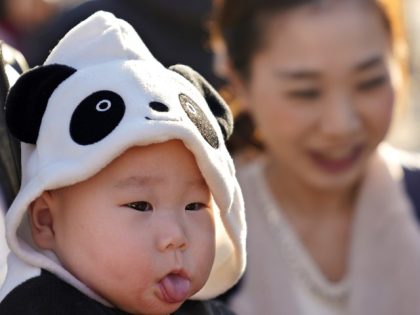
Kenya’s fertility rate declined over the past decade, particularly in urban areas of the country, Kenya’s the Star newspaper reported on Friday citing newly released data from the Kenyan government.
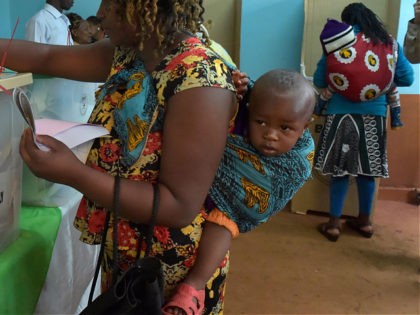
Birth rates across nine Chinese provinces and autonomous regions decreased in 2021, the state-run Global Times reported on Wednesday.

Chinese Communist Party authorities “punished” 11 party officials and personnel in southern China’s Guangxi autonomous region in recent days for failing to crack down on a local couple who allegedly gave birth to 15 children over a 21-year period, the state-run Global Times reported Monday.
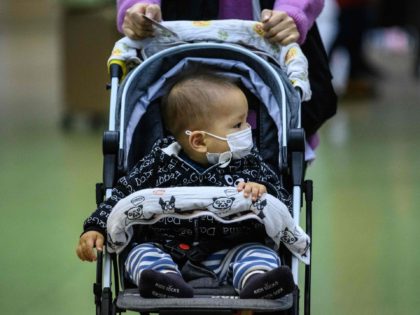
Taipei Mayor Ko Wen-je awarded at least one local couple a cash prize of $1,753 on Monday for agreeing to marry by the end of the year as part of a Taiwanese government campaign to boost the nation’s flagging birth rate, the Taipei Times reported on Tuesday.

The number of new births in Hong Kong fell to a record low in 2021, the South China Morning Post (SCMP) reported on Monday, noting the figure dropped below 40,000 for the first time in 56 years.

The number of new marriages dropped year-on-year across two Chinese provinces in 2021, the South China Morning Post (SCMP) reported on Thursday.

Conservative French presidential candidate Eric Zemmour has proposed giving a €10,000 “birth grant” for children born in rural French areas in an effort to increase French birth rates. The conservative writer and television pundit announced that he would be looking

The number of women of childbearing age — between 15 and 49 years old — in China decreased in 2021 by 5 million, China’s National Bureau of Statistics (NBS) announced on Monday.

Data released by China’s National Bureau of Statistics on Monday showed births running only slightly ahead of deaths in 2021, providing further evidence that the Chinese population has stalled out at 1.413 billion and might already be declining – a fearsome prospect for an economic system designed on the assumption of stable or steadily-increasing population.
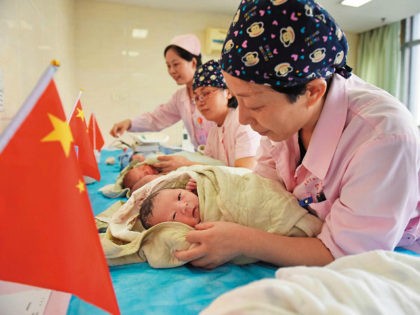
A Chinese state-run news site published, then deleted, an editorial in recent days that argued every Chinese Communist Party (CCP) member should have three children to help reverse China’s declining birth rate, the Guardian reported Thursday.
